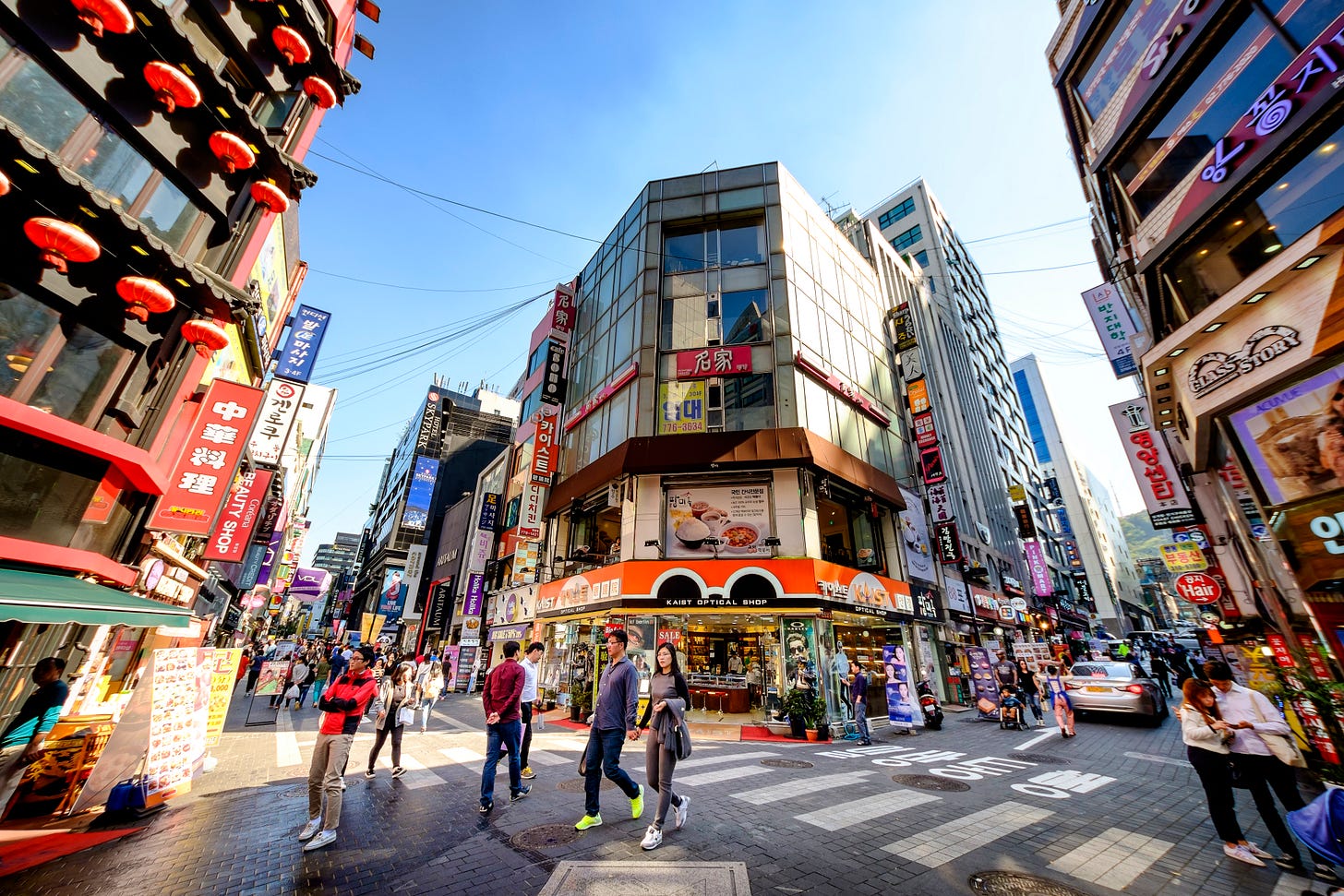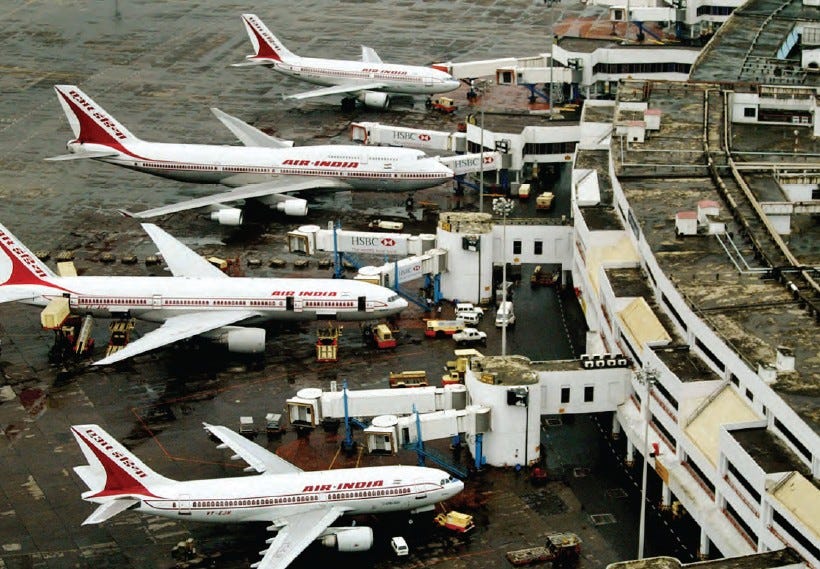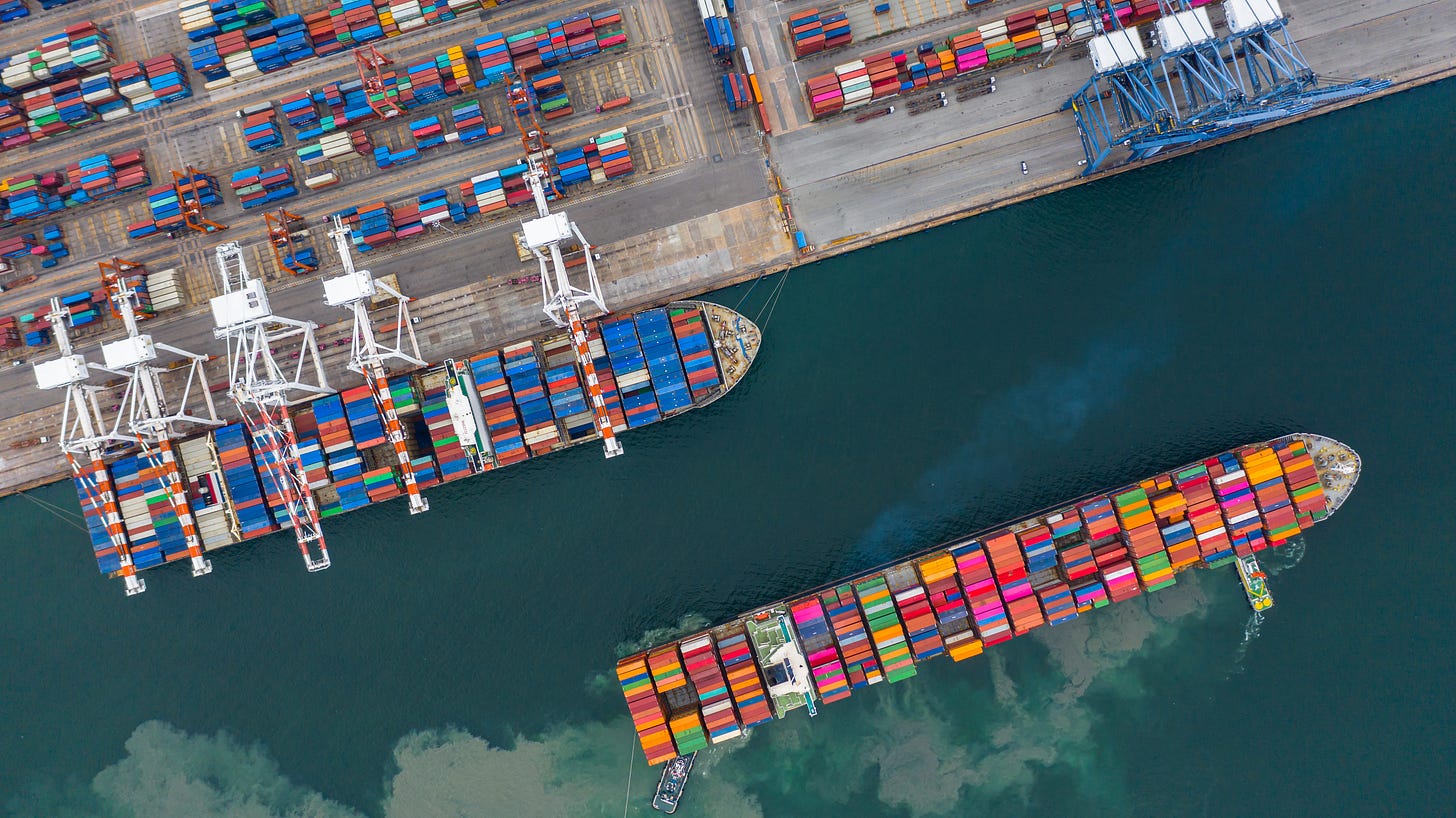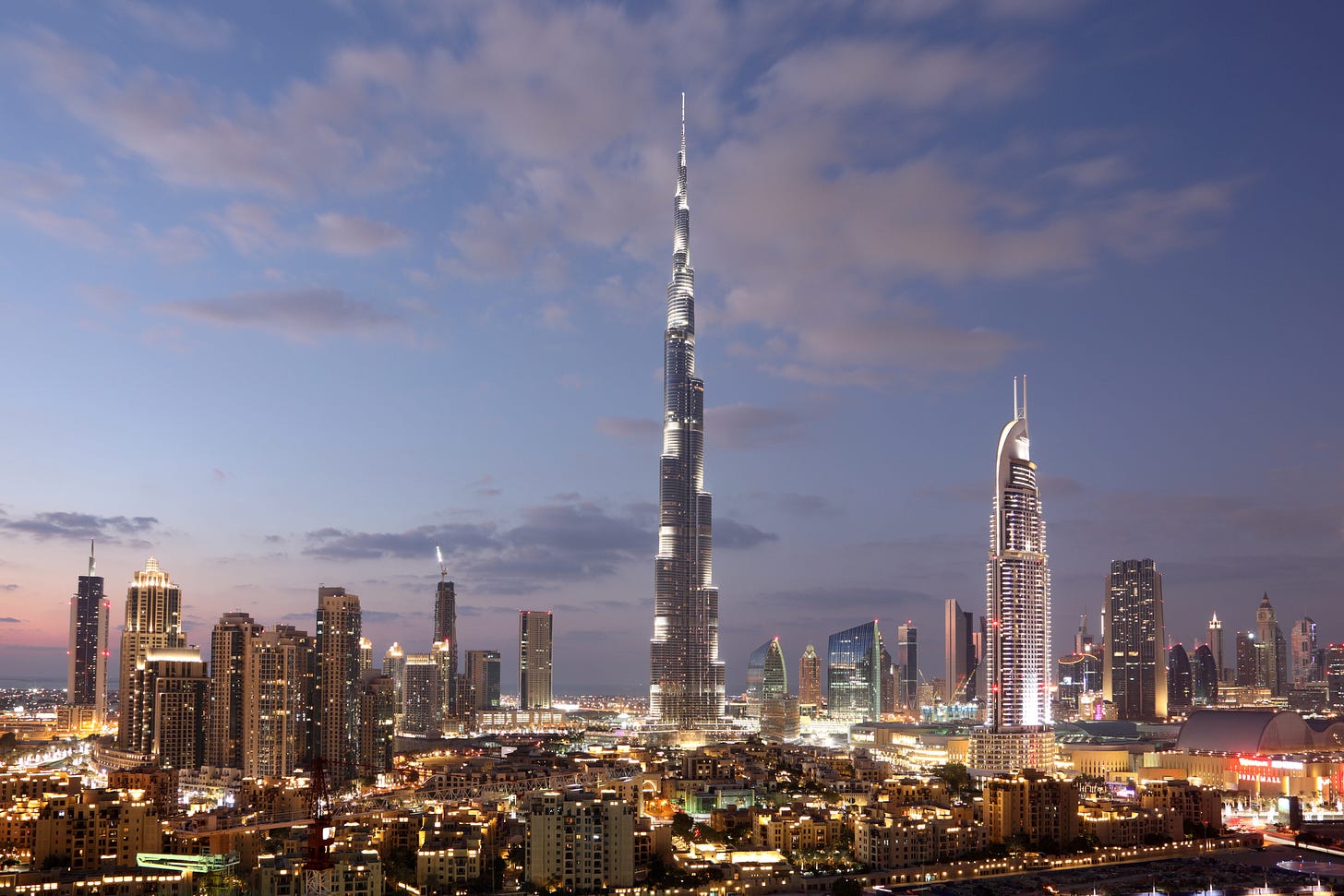Emerging Markets Monitor - February 17
Top China Tech Banker Goes Missing, EM Rally Stalls on Fed Concerns, Air India Rising, Container Prices Plummet, African Stock Exchanges + MENA Tech Startups
The Top 5 Stories Shaping Emerging Markets from Global Media - February 17
Top Tech Dealmaker and China Renaissance Founder Missing, Shares Tank
Financial Times
“China Renaissance, one of the country’s leading investment banks, was on Friday working to calm anxious employees following the disappearance of its founder and renowned dealmaker Bao Fan.”
“Shares in the Hong Kong-listed company fell 50 per cent when the market opened on Friday before paring losses to be down about 28 per cent, after the boutique bank disclosed it was unable to contact Bao.”
“China Renaissance has been in turmoil since September, when group president Cong Lin was detained by Chinese authorities. Business figures in China often become unreachable when they are the subject of a government investigation.”
“…The disappearance of Bao, who made his fortune in tech deals, comes despite Beijing appearing to ease a crackdown on the sector, which had throttled the investment bank’s once-thriving business in lucrative listings and corporate finance.”
“…Bao’s disappearance adds to a long list of Chinese financial executives who have disappeared as part of Chinese president Xi Jinping’s long-running anti-corruption campaign, which he launched shortly after coming to power in 2012.”
“Bao’s connections to China’s tech sector were formed in the late 1990s when he met the founders of the country’s ‘tech trinity’ — Alibaba’s Jack Ma, Tencent’s Pony Ma and Baidu’s Robin Li. ‘I met them when they were nobody,’ Bao told the FT in 2018. But the fortunes of China’s tech moguls have drastically changed under Xi’s tenure, and shares in most tech groups have not fully recovered from a sell-off sparked by a crackdown on the sector.” The FT reports.
Emerging Market Rally Stalls on Fed Rate Rise Concerns
Wall Street Journal
“A blistering rally that lifted emerging-market stocks and bonds in recent months may be running out of steam, as concerns resurface about tighter U.S. monetary policy.”
“The strength of the U.S. economy continues to defy expectations, with data this month showing price pressures remain stubbornly high and the labor market is still strong. That has prompted investors to increase bets that U.S. rates will peak above 5% and stay there for longer, in turn testing demand for investments ranging from Chilean bonds to Thai stocks.”
“A JPMorgan index of emerging-market bonds has fallen 1.3% this month, while MSCI’s emerging-market stock benchmark has fallen 1.6%. Both indexes last week posted their biggest losses since early fall, while a gauge of emerging-market currencies had its biggest weekly decline since April.”
“Emerging markets are very sensitive to Federal Reserve policy, because higher U.S. rates make riskier assets comparatively less attractive to investors. Higher rates also typically boost the dollar, making it more expensive for emerging countries to buy oil and other goods that are priced in dollars, or to service hard-currency debts.”
“‘We’re now in that phase where the market is realizing that emerging markets have run quite a lot and that the story in the U.S. is going to go one of two ways,’ said David Hauner, head of emerging-market strategy for Europe, the Middle East and Africa at Bank of America. ‘It’s going to have to either see a sharper deterioration in economic growth, or more Fed hikes.’” Chelsey Dulaney reports.
Air India Massive Plane Deal a Game Changer
BBC
“Air India's record deal for 470 planes from Airbus and Boeing has happened at a time when the carrier plans to become ‘a world-class proposition’, in the words of N Chandrasekaran, chairman of Tata group, which owns the airline.”
“These orders - beating the American Airlines' 460-plane deal in 2011 - would modernise Air India's fleet and help it to ‘dramatically’ expand its network, Mr Chandrasekaran said.”
“The troubled national carrier, which was acquired by Tatas about two years ago, has retired most of its older aircraft and launched a five-year plan to modernise its ageing fleet. The first new plane will go into service at the end of this year.”
“The sheer size of this new order indicates Air India's desire to reclaim its pole position in India's crowded aviation market and acquire a strategic edge to service the world, say experts.”
"‘These orders directly synergise Air India's fleet with Lufthansa and Singapore Airlines - all part of Star Alliance, the world's largest global airline alliance,’ said Mark Martin, an aviation analyst. ‘To me it looks like a big game plan to counter the dominance of Gulf carriers, for whom Star Alliance has been an arch nemesis’.”
“Indian travellers currently rely heavily on Emirates, Qatar Airways, Etihad and other Middle Eastern airlines for overseas connections to Europe, US and other parts of the world. That could change as Air India's new fleet are put into service, Mr Martin believes.”
“The acquisition of wide bodied aircraft like the A350s will allow Air India to penetrate markets like the US and Australia directly through non-stop flights between these destinations and India. These are lucrative routes to service the massive Indian diaspora that resides overseas.” BBC reports.
Container Price War Underway, Prices Plummet
Sea Trade Maritime News
“The latest market updates from market intelligence platform Xeneta and analyst Sea-Intelligence paint a bleak picture for the container market as container lines choose a price war over aggressive capacity management.”
“Xeneta’s data shows that on the five major fronthaul routes out of Asia, contract rates were on average $3,900 per feu higher than spot rates as of 12 December 2022. The same measurement on 12 February 2022 was $810 per feu.”
“‘The corridor with the greatest fall was the Far East to US East Coast, where a long-term premium of $5,180 per feu in mid-December collapsed to $1,280 over the course of the next two months,’ said Xeneta.”
“The falling contract rates mark the end of a costly COVID hangover for shippers. The high freight rate environment caused by equipment and personnel shortages, terminal congestion and increased consumer demand in the wake of the pandemic was locked in by longterm contracts signed when shippers feared further rate rises and needed to secure space on vessels.”
“As container congestion eased and spot prices began to fall, many shippers were left paying over the odds for shipping until contract renewals came around. Xeneta chief analyst Peter Sand said that shippers are now “firmly in ascendancy” in those negotiations.” Sea Trade Maritime News reports.
Are African Stock Exchanges Up to the Mark?
African Business
“Globally, emerging market stocks are back in vogue after a dismal 2022. Institutional investors are ploughing back into the asset class – but African equity markets rarely get a look in. From the perspective of Western investors, the catch-all term ‘emerging market equities’ focuses mainly on Asia and South America.”
“The MSCI Emerging Markets Index, one of the most popular global emerging market indices, includes companies from 24 emerging countries. Just two of these are in Africa: South Africa and Egypt.”
“Today, there are over 30 stock exchanges across the continent. These include three regional exchanges: the Bourse Régionale des Valeurs Mobilières (BRVM), based in Côte d’Ivoire; the East Africa Exchange, based in Rwanda; and the Bourse des Valeurs Mobilières de l’Afrique Centrale (BVMAC) in Gabon.”
“But the number of initial public offerings (IPOs) in Africa has been falling dramatically. PwC, a professional services firm, estimates that there were 28 IPOs in Africa in 2017, valued at about $3bn. That fell each successive year to 2021, when just eight were recorded, valued at $921m.”
“Privatisations of government assets could reverse the decline. Recently the Egyptian government announced that it would be listing 32 state-owned enterprises on the local stock exchange from next year. As part of the agreement on a $3bn IMF loan, the government is required to reduce its footprint in the local economy, having crowded out private investment for decades.” African Business reports.
Also, your humble correspondent and caravan leader of Emerging World will also begin penning some thoughts on Forbes as a new emerging markets contributor.
A sneak peak at the first piece below:
Middle East Tech Startups Are a Hot Emerging Market
Forbes
“The Middle East and North Africa tech startup scene is sizzling, fueled by rapid growth in the United Arab Emirates and Saudi Arabia, a new crop of cash-rich investors and Egypt’s newest unicorn.”
“There’s a new entrepreneurial energy from Rabat to Riyadh, accelerated by the rise of sovereign wealth funds as major investors and growing smartphone penetration. Startups attracted a record-breaking $3.94 billion in funding in 2022, with the heaviest deal concentration in the UAE, Saudi Arabia, and Egypt, according to Wamda, a regional thought leader and tech investor.” Afshin Molavi reports.
It's never too late to be what you might've been. ―George Eliot.








congrats also!
re : air india
a. suppliers getting front-loaded payments ?
b. does tata hold it as a non-recourse subsidiary ?
c. who gets to be the next 'owner' of the planes ?
Congrats on the Forbes gig!